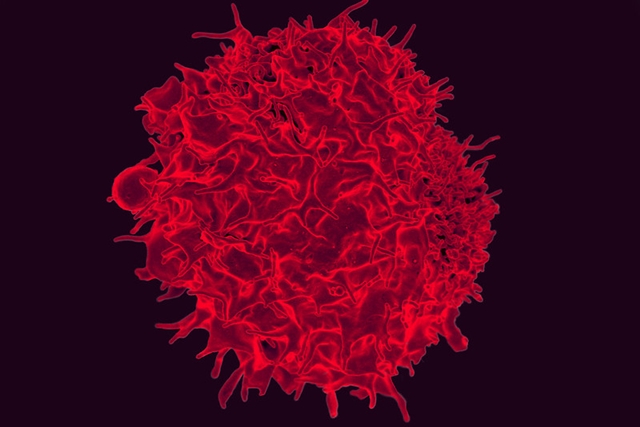28 Oct. 2019. A cancer center and biotechnology company are creating treatments that target proteins on immune-system cells unique to each patient. The agreement between MD Anderson Cancer Center in Houston, part of the University of Texas system, and Ziopharm Oncology Inc. in Boston extends their current collaboration that began in 2015 to 2023.
Ziopharm Oncology develops immunotherapies, treatments that harness the immune system to attack tumors. The company says its technology builds on recent breakthroughs like chimeric antigen receptors and T-cell receptors that are genetically engineered to attack and destroy cancer cells. Ziopharm’s technology, called Sleeping Beauty, genetically modifies T-cell receptors to home-in on specific proteins on cancer cells. T-cell receptors are proteins on the surface of T-cells in the immune system that recognize and bind to invading cells.
The targets for T-cell receptors in this case are neoantigens, proteins produced by cancer cells that form a unique identifying signature. Ziopharm employs the Sleeping Beauty process to produce T-cell receptors that address these specific protein signatures with transposable elements, sometimes called “jumping genes,” that move from one position in the genome to another. In addition, patient cells are exposed to an electric field, a process called electroporation, that weakens the cell membranes allowing for easier entry of attacking T-cells.
A paper published in 2016 describes the Sleeping Beauty technology. Ziopharm says the process is faster and less costly than most current gene and cell therapies, and can even produce patient-specific treatments at the point of care.
So far, the Sleeping Beauty process is applied to blood-related cancers, but the new agreement aims to expand the techniques to solid tumor cancers. Under the agreement, Ziopharm will fund an additional $20 million in research on T-cell receptors, or TCRs, and neoantigens through 2023, as well as unspecified payments to MD Anderson for reaching clinical and regulatory milestones. MD Anderson will also earn royalties on sales of Ziopharm products that result from the collaboration, as well as rights to purchase Ziopharm stock in the future at a specified share price.
Ziopharm and MD Anderson began their collaboration in 2015 to develop genetically engineered T-cells with chimeric antigen receptors, also known as CAR T-cells, as treatments for blood-related cancers. On 1 October, Ziopharm received Food and Drug Administration clearance for the company’s investigational new drug application to begin early-stage clinical trials of these treatments with leukemia and lymphoma patients.
“This new agreement is a launch point to expand our TCR library,” says Laurence Cooper, Ziopharm CEO in a joint statement, “and execute two new clinical trials; a trial for utilizing TCRs from the library targeting hotspot mutations in KRAS, TP53, and EGFR, and a second trial for personalized TCRs targeting patient-specific neoantigens.”
The deal also enables Ziopharm to expand its physical presence on the MD Anderson campus, including new labs and offices leased from the institution. The company plans to relocate some of its T-cell therapy staff to this Houston space.
More from Science & Enterprise:
- Moderna Funding University Immunology Research
- Biotech Developing Genome-Adjusting Disease Treatments
- Controlled Brain Tumor Gene Therapy Shown Safe
- MD Anderson, Drug Maker Partner on Lung, GI Cancers
- Nanotech Vaccine Aids Melanoma Immunotherapy
* * *


 RSS - Posts
RSS - Posts
You must be logged in to post a comment.